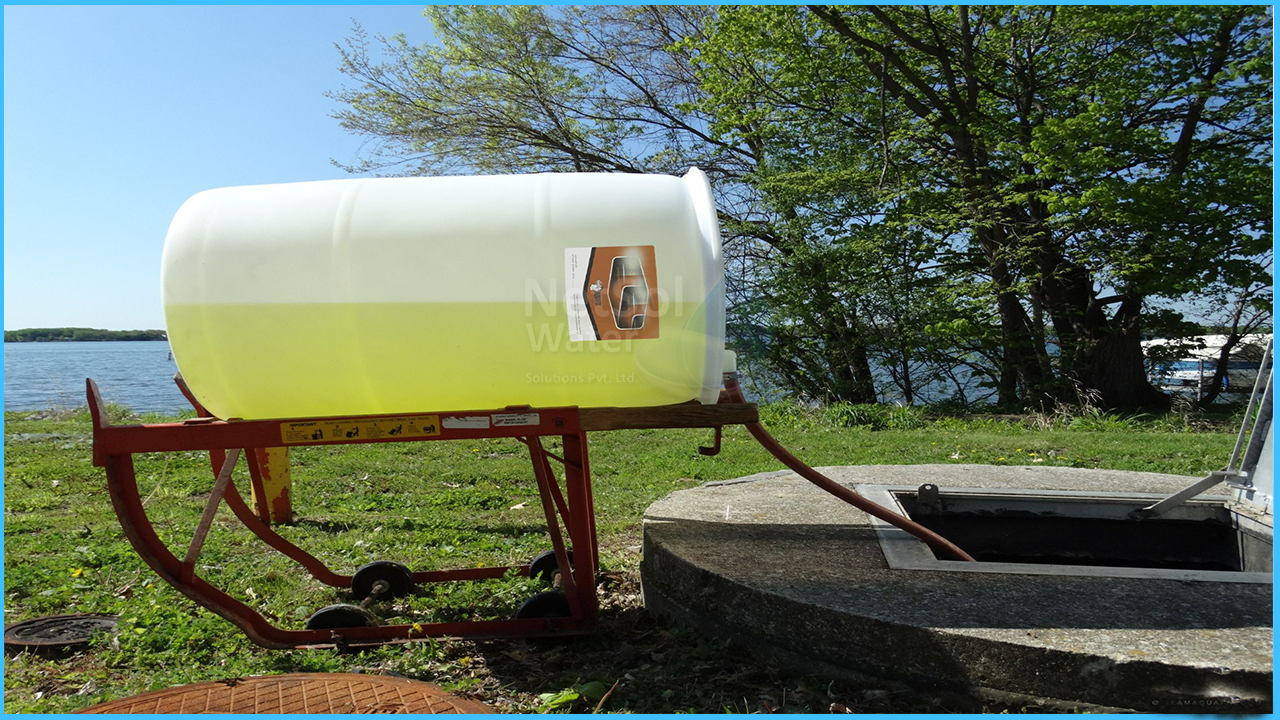WHAT IS HYDROGEN SULFIDE?
The presence of hydrogen sulfide in home drinking water supplies is not a health risk, but it is a common nuisance contaminant with a distinct "rotten egg" odor that makes water treatment desirable. There are several treatment methods available, and hydrogen sulfide is frequently treated and removed using the same process and equipment as iron and manganese removal.
Hydrogen sulfide is a gas produced by the decomposition of organic matter, such as plant material. It is most commonly found in groundwater with relatively low dissolved oxygen concentrations and a pH less than 6.0. (Relatively acidic). Other forms of sulfur may be present in higher pH waters (sulfide or bisulfide).Sulfur bacteria, which are not harmful, are also found in many private water supplies and distribution systems. These bacteria consume natural sulfur compounds in water and produce hydrogen sulfide as a byproduct. Sulfur bacteria do not pose a health risk to humans, but their presence in drinking water can cause unpleasant tastes and odors.
Sometimes hydrogen sulfide is only found in hot water in the home. A biochemical reaction between sulfates in the water, sulfate-reducing bacteria, a magnesium rod in the hot water heater, or organic matter in the water causes this condition. If the odor is caused by heat-loving sulfate-reducing bacteria in the water heater, disinfect it with chlorine bleach or hydrogen peroxide. The reaction with the magnesium rod is sometimes the source of odor issues. The magnesium rod's purpose is to keep the water heater from corroding.If corrosion is a concern, replace the magnesium rod with a zinc or aluminum rod.
HOW TO TREAT HYDROGEN SULFIDE?
The majority of sulfur water treatment methods rely on the oxidation of hydrogen sulfide gas into elemental sulfur, a solid. The process by which soluble or dissolved contaminants are converted to soluble byproducts or insoluble products that can be filtered is known as oxidation. The chemical and physical properties of the reactants are altered during this process. Several methods exist for oxidizing hydrogen sulfide. Chemical oxidation, such as chlorination, is recommended if concentrations exceed 6.0 mg/l. If the concentrations do not exceed 6.0 mg/l and the pH of the water is greater than 6.8, an oxidizing filter such as manganese greensand can be used.
CHLORINATION:Continuous chlorination is a popular and efficient method for oxidizing hydrogen sulfide, especially when the water pH is between 6.0 and 8.0. Chlorine is typically administered in the form of sodium hypochlorite, which reacts with sulfide, hydrogen sulfide, and bisulfide to form compounds that do not cause foul taste or odor in drinking water.
AERATION: When hydrogen sulfide concentrations are less than 2.0 mg/l, aeration is most effective. This method may not remove all of the offensive odor at higher concentrations unless the air is used to chemically oxidize hydrogen sulfide into solid sulfur, which is then filtered.
MANGANESE GREENSAND FILTER: Another common treatment method for removing sulfur from drinking water is manganese greensand. It is typically recommended for water with a hydrogen sulfide concentration of less than 6.0 mg/l. A special coating on a manganese greensand filter oxidizes hydrogen sulfide gas to solid sulfur particles, which are then filtered. The greensand is regenerated with potassium permanganate after all of the manganese oxide has been consumed.
CATALYTIC CARBON:Activated carbon with a modified carbon surface is referred to as catalytic carbon. Adsorption, a physical process in which dissolved molecules adhere to the surface of the carbon filter, is commonly associated with activated carbon. When used alone, activated carbon filtration removes very small amounts of hydrogen sulfide, with concentrations typically falling below 0.3 mg/l. However, activated carbon has a limited capacity to adsorb hydrogen sulfide. When the activated carbon in the filter becomes saturated, it must be replaced rather than regenerated. As a result, activated carbon is ineffective at removing moderate to high levels of hydrogen sulfide from drinking water.




